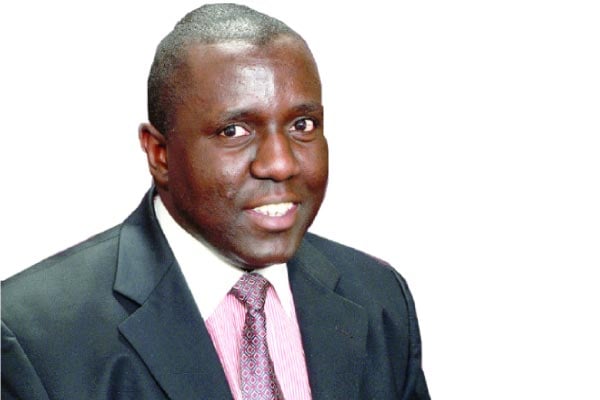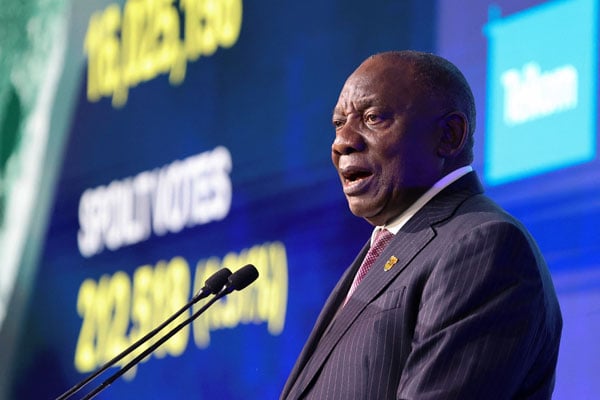
Author: Mr Karoli Ssemogerere is an Attorney-at-Law and an Advocate.
Last week, South Africa held its 7th post-apartheid general election. In the highly competitive poll, ANC was relegated to the largest single party with 40 percent of the vote. The ANC founded in 1912 was no longer the majority party.
In 2019, it had lost its two-thirds majority. Voters felt that ANC had not done enough to stifle corruption. Unemployment is high, about 40 percent of the workforce. The ANC had delivered a lot of social infrastructure but it really lost the heart of young people who as elections should be are about the future not the past.
The ANC is likely to enter into either a leftist coalition with both MK, the party of former President Jacob Zuma and EFF, the rabble-rousing leftist party led by former head of the ANC’s youth wing Justus Malema, both of whom are pushing ANC to redistribute land and other strategic economic resources. The two parties won 58 and 39 seats in the National Assembly respectively. This coalition would command 236 seats in the lower house.
A right-left pro-business coalition is also possible, with Cyril Ramaphosa at its head, with the Democratic Alliance would command 246 seats. However, the bases of the two parties may not align.
The ANC would be seen moving further away from its roots unlike the ANC-MK-EFF coalition all branches cut from the same tree. The Democratic Alliance in power in the Western Cape is seen as a representative of the “haves”. It leans right in many respects similar to Germany’s Free Liberal Democrats.
Cape Town remains at the center of one of the country’s richest urban centers but around it is crushing poverty. This coalition would likely address some of South Africa’s Achilles heels, corruption and immigration. It would also address another problem, a steady stream of emigration of South Africa’s white population.
One easy-to-discern result from South Africa will be the lowering of the rhetoric by EFF after they were squeezed into fourth place by MK. Interestingly prior to the election, South African Speaker Nosiviwe Mapisa-Nkaqila resigned on April 3 after she was arrested and charged with multiple counts of corruption dating from her tenure as Defence Minister.
In the United Kingdom, the Tories are staring down an uncertain future as a much smaller parliamentary party. Current projections indicate the Tories 350 seats may fall to as low as 66 seats, numbersunheard of in recent UK parliamentary history. Labour is projected to win from 400 to as many as 420 seats.
The Liberal Democrats may overtake the Scottish Nationalists with at least 50 seats in Parliament. Even the tiny Greens’ long holding just one seat, Brighton Pavilion may win their second seat in the Commons. Britain’s Reform Party also re-entered the fray announcing rabble-rouser Nigel Farage a candidate for their old seat of Clacton, 70 miles east of London.
Further east in India, the world’s biggest democracy with over 600 million voters, the ruling BJP lost its outright parliamentary majority and the Congress-led opposition survived a death call. BJP saw its target of 400 MPs in the Lok Sabha shredded to just 242. BJP and its allies will hold 292 seats in Prime Minister Modi’s third term, while Congress and her allies will hold 242 seats.
Modi seemed to turn off poorer voters and those who believe in India’s secular democratic traditions. For now, he won’t be able to amend the constitution.
In Mexico, voters gave a stamp of approval for the leftist party of the incumbent, electing the first woman president, Claudia Sheinbaum, granddaughter of Jewish immigrants. The runner-up was a woman as well.
Power sharing makes authoritarian rulers uncomfortable, but is inevitable. In the region, one or more forms of power sharing are on display in Kenya and the DRC.
In Kenya, though they have exposed two glaring problems. The ruling coalition is led by the regions that have benefited the most from independence, and the opposition coalition is the opposite.
Needless to say, the regions, in between provided the winning margin and were rewarded with the Speakership of Parliament and position of Prime Cabinet Secretary.
Over the weekend, ANC, the party of Musalia Mudavadi who is increasingly likely to be President Ruto’s running mate in 2027 announced plans to fold itself into UDA the largest party in the Kenya Kwanzaa coalition. Such is electoral politics.
Mr Ssemogerere is an Attorney-At-Law and an Advocate.
[email protected]

